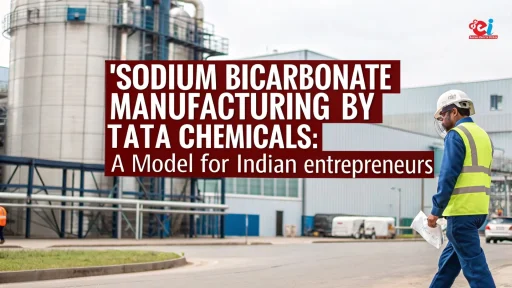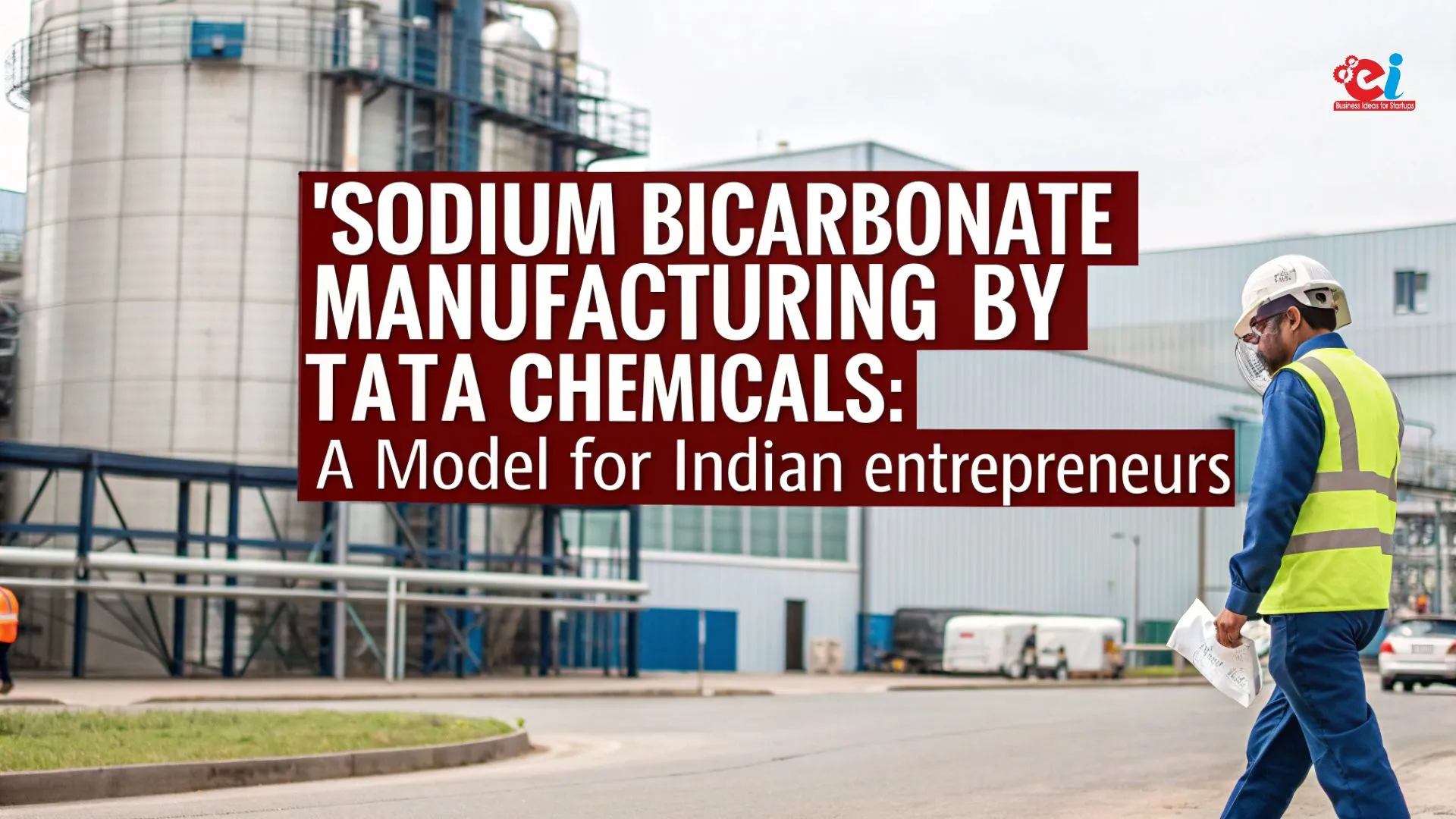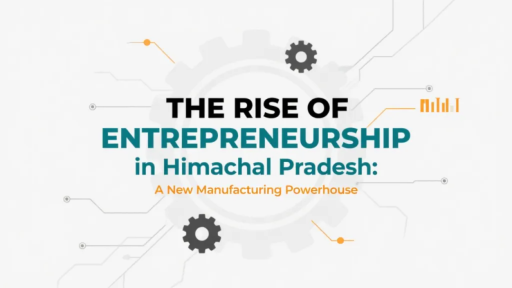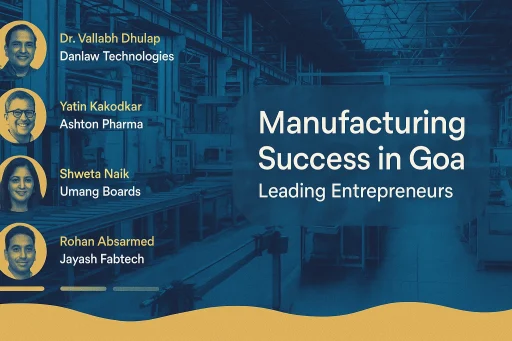The White Powder with a Billion Dollar Potential
Sodium bicarbonate, commonly known as baking soda, may be a humble compound in the eyes of the average consumer, but it powers a surprisingly broad spectrum of industries. From Tata Chemical food processing and pharmaceuticals to the treatment of water, animal feed, and environmental protection, this white powder is now an essential component of the global economy. While it might appear easy to make it on an industrial scale, consistently economically, sustainably, and profitably is not the case.
In India, no company has demonstrated the adroitness of this process more effectively than Tata Chemicals. The company was initially an endeavor to manufacture soda ash within Mithapur, Gujarat, has become a global benchmark for integrated, efficient as well as sustainable production of sodium bicarbonate.
This story isn’t merely about a business’s achievement. It’s a model for Indian entrepreneurs, a route that demonstrates how a planned, well-executed Tata chemical manufacturing company is both profitable and useful. This article delves into the process by which Tata Chemicals produces sodium bicarbonate as well as the reasons why its market is growing and how companies can take advantage of this trend with the help of NIIR Project Consultancy Services (NPCS).
The Tata Model: Beyond Commodity, Towards Brand and Sustainability
Tata Chemical approach to sodium bicarbonate is distinctive in that it combines downstream and upstream operations, manages quality throughout the process and also segments the market by using distinct branding.
The key to Tata’s growth is its Mithapur manufacturing plant which is one of the most technologically advanced chemical plants in India. This is where Tata initially produces soda ash through its Solvay process. Soda ash then transforms into sodium bicarbonate with carbon dioxide, which is carefully controlled in carbonation towers. Vertical integration guarantees an uninterrupted supply of raw materials, less expense and precise control of chemical purity, which is crucial for applications in the food industry and pharmaceutical manufacturing.
The strategy of the company goes beyond manufacturing. It has introduced Medikarb™ which is India’s first brand-name sodium bicarbonate, a pharmaceutical grade. It is manufactured under GMP-certified conditions to ensure that it complies with the strictest international pharmacopoeial guidelines. Medikarb is used extensively in dialysis facilities as well as injectables and antacids in which quality and batch traceability are required.
Tata’s European operations, however, has also developed EcoKarb® which is a low carbon form of sodium bicarbonate made by capturing CO2 emissions produced by industries. It not only minimizes environmental impacts, but also creates an appealing business case for ESG-conscious companies across the globe.
The Manufacturing Process: A Symphony of Chemistry and Control
While the core chemistry of sodium bicarbonate production may seem straightforward–combining soda ash, carbon dioxide, and water the industrial reality is much more complex.
In Tata Chemical, the process begins with soda ash, which is then dissolved in water to create a mixture. When the gas disintegrates in reaction, sodium bicarbonate starts to form a precipitate from the solution.
The resulting slurry passes through centrifuges as well as filtration systems to remove these solid crystals of the rest of the liquid. The crystals are then cleaned to eliminate impurities, then dried with high-temperature the air, as well as vacuum dryers and then classified according to particle size, based on the intended use.
The thing that makes Tata’s process unique is the strict system of environmental control and recovery. Ammonia produced in the soda ash upstream process is recycled and reused. CO2 emissions are absorbed and reintegrated. Wastewater is treated with Zero Liquid Discharge (ZLD) systems to ensure that nothing harmful is released from the factory.
When it comes to the manufacturing of pharmaceutical-grade Medikarb™, the process is made more rigorous. Cleanroom environments, stainless steel equipment, air filtering systems as well as the monitoring of batches using digital technology are used to make sure that the final product complies with global standards for regulatory.
This level of accuracy does not just ensure quality, but also allows Tata to focus on high-margin markets, an method that startups can follow in the event that they design their plant with flexibility and conformity at the forefront from the beginning.
Related: How to Start a Sodium Carbonate Manufacturing Business?
Applications and Demand Drivers
Market demand for sodium bicarbonate is continuing grow due to its wide range of uses. The most important applications include:
- Dialysis solutions: Pharmaceuticals injectionable medicines as well as antacids and pH buffers
- Food and Beverages: Baking Soda, drinks with effervescent, acidity regulation
- Wasser Treatment: Neutralization the acidic waste streams as well as Potable water pH control
- Industrial Applications: Treatment of flue gas (removal from SOx), textile and rubber processing
- Animal Feed: The regulation of pH as well as electrolyte balance within livestock and poultry
- Fire Safety: A key element for dry chemical fire extinguishers
As India’s pharmaceutical industry expands worldwide, the demand for sodium bicarbonate that is high-pure is increasing rapidly. Demand in India is growing due to modern water systems for urban treatment, an increase in food processing and packaging, as well as export-oriented manufacturing.
Demand Outlook: Indian and Global Market Forecast
Here is a five-year market projection that shows the increasing need for sodium bicarbonate:
| Year | Global Demand (MMT) | India Demand (Lakh Tonnes) | Key Demand Segments |
| 2025 | 5.2 | 5.5 | Pharma, Food, Water Treatment |
| 2026 | 5.6 | 6.1 | Flue Gas Scrubbing, Dialysis |
| 2027 | 6.0 | 6.7 | ESG-focused Exports, Feed Industry |
| 2028 | 6.5 | 7.2 | Green Chemistry, Injection-Grade APIs |
| 2029 | 7.1 | 7.9 | Packaged Food, Specialty Chemicals |
The production of India is currently controlled by a few players which are limited in local sources of bicarbonate that is food/pharma grade and a significant market for manufacturers with specialized skills.
Learn from Ratan Tata: Values That Helped Build an Empire
Ratan Tata’s philosophy of leadership was a major influence on the way Tata Chemical evolved its manufacturing method. It wasn’t just about the quantity of products, it was always about quality and integrity as well as sustainability.
He emphasized:
- People-centered design: Factory designs should help the local economy, and not squander them.
- Environmental forecasting: Tata Chemicals was among the first companies to employ the capture of CO2 in manufacturing processes across Europe.
- Thinking long-term: Capital was deployed not to make quick profits instead, but to ensure the highest quality of institutions.
Entrepreneurs who are looking to break into the chemical industry can learn from this a valuable lesson: reputation grows more quickly than revenue. If your brand is based on trust and a long-term perspective and a long-term vision, your company will always be successful, even in a highly competitive market.
Why Indian Entrepreneurs Should Enter the Sodium Bicarbonate Market
Establishing an sodium bicarbonate facility is among the most easily accessible and profitable industrial possibilities in India in the present. Here’s the reason why the timing is perfect:
- Growing End-Use Markets: India’s food, pharma and water sectors are expanding faster than the global average.
- Low dependence on imports: Raw materials such as CO2 and soda ash are readily available locally.
- Favorable Policies: Assistance by “Make in India” and MSME-linked credit lines.
- The Leverage of Sustainability: Entrepreneurs are able to integrate carbon capture and water reuse systems as early as the beginning and establish themselves as green manufacturing companies.
- High Variations in Product: Products that are based on particle size and purity as well as application-specific grades provide a wide range of pricing options.
- Modular Scale-Up: Could begin with 25-50 TPD and gradually move up to pharma-grade units as the market accessibility improves.
A well-run sodium bicarbonate plant could yield steady long-term B2B contracts, particularly if you concentrate on segments that are not well-served, such as dialysis-grade as well as food-grade chains of supply.
How NPCS Helps Entrepreneurs Build Their Bicarbonate Venture
The process of starting a new plant, especially in the chemical industry–can be overwhelming. This is why NIIR Project Consultancy Services (NPCS) comes in.
With more than three decades of experience working with industrial and MSMEs, NPCS offers 360-degree support to assist entrepreneurs in moving from concept to implementation and then from prototyping to mass production.
Consulting services offered by us include:
- Feasibility reports that are tailored to the location as well as input costs, capacity
- Layout of the Plant based on specifications for machines as well as vendor selection and space optimization
- The Regulatory Guidance document on BIS, FSSAI, GMP, Pollution Control Board approvals
- Technology Selection – Standard or integrated carbon-capture
- Branding & Market Strategy – for food, pharma, or industrial segments
- Automation Roadmap from SCADA system to dashboards for quality control
NPCS collaborates closely with every client, offering assistance with documentation, machinery sourcing assistance, cost estimation and even post-commissioning help.
If you’re looking to set up an GMP-compliant facility for the supply of pharma products or an industrial grade bicarbonate plant that focuses on the treatment of flue gas and cleaning industries, NPCS helps you do it correctly from the start.
Final Thoughts: A Business Rooted in Simplicity, Scaled Through Strategy
The use of sodium bicarbonate goes beyond baking and buffering. It’s about building a strong and profitable business. Tata Chemical has shown that when it is integrated properly of sustainability, sustainability, and segmentation strategy, even a basic molecules can turn into a world appreciated product.
As India shifts towards clean manufacturing, decentralized production of pharma and export-oriented chemical production, this is the right moment for entrepreneurs of the future to venture into this field.
With the right knowledge, tools, and the support of a partner such as NPCS, you can set up a business that is not just successful, but recognized, repeatable, and ready for scaling.






